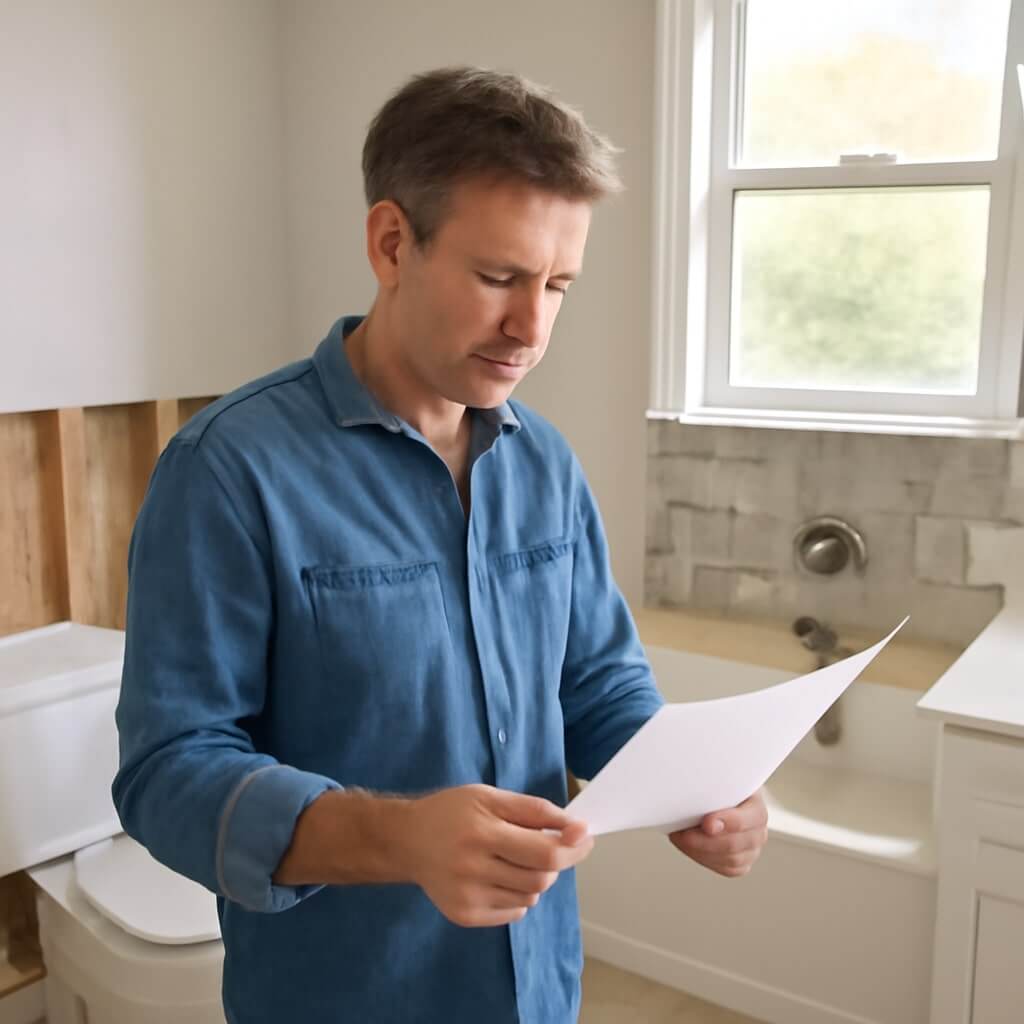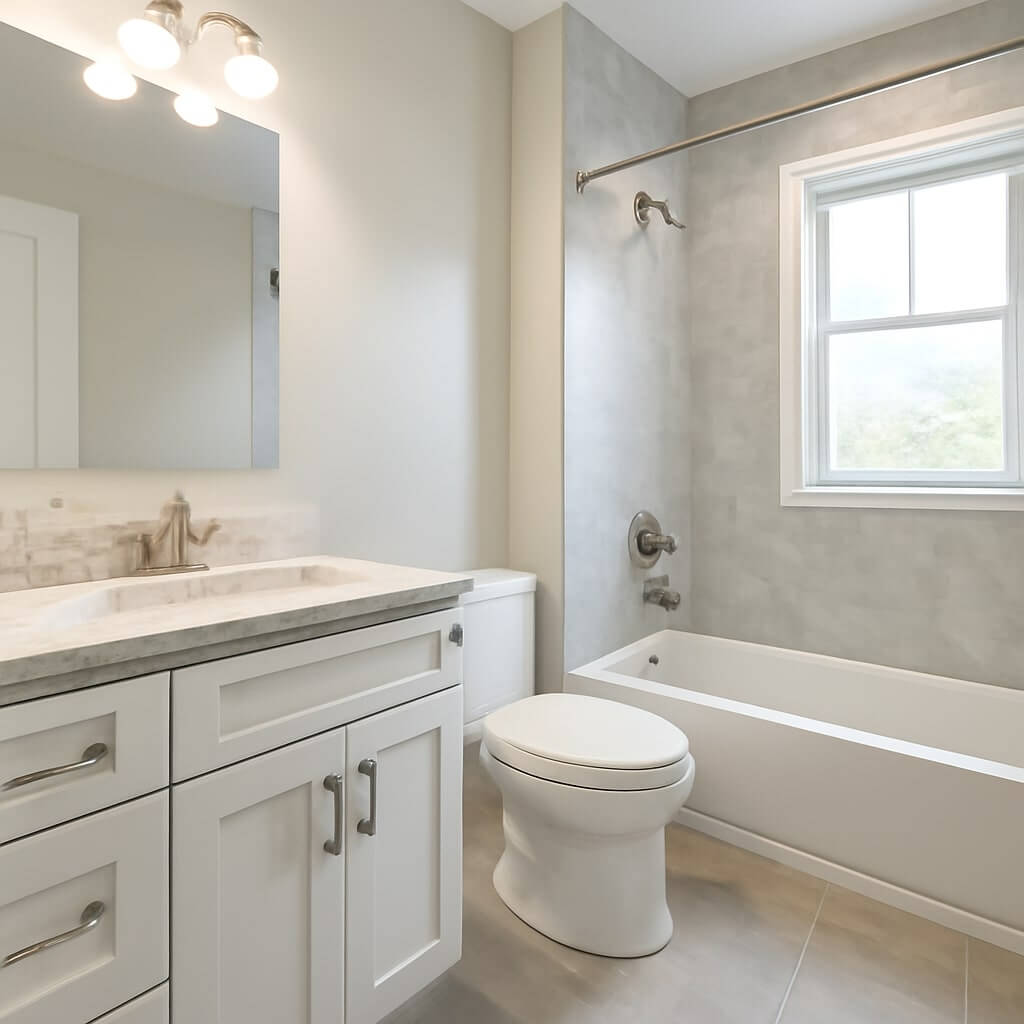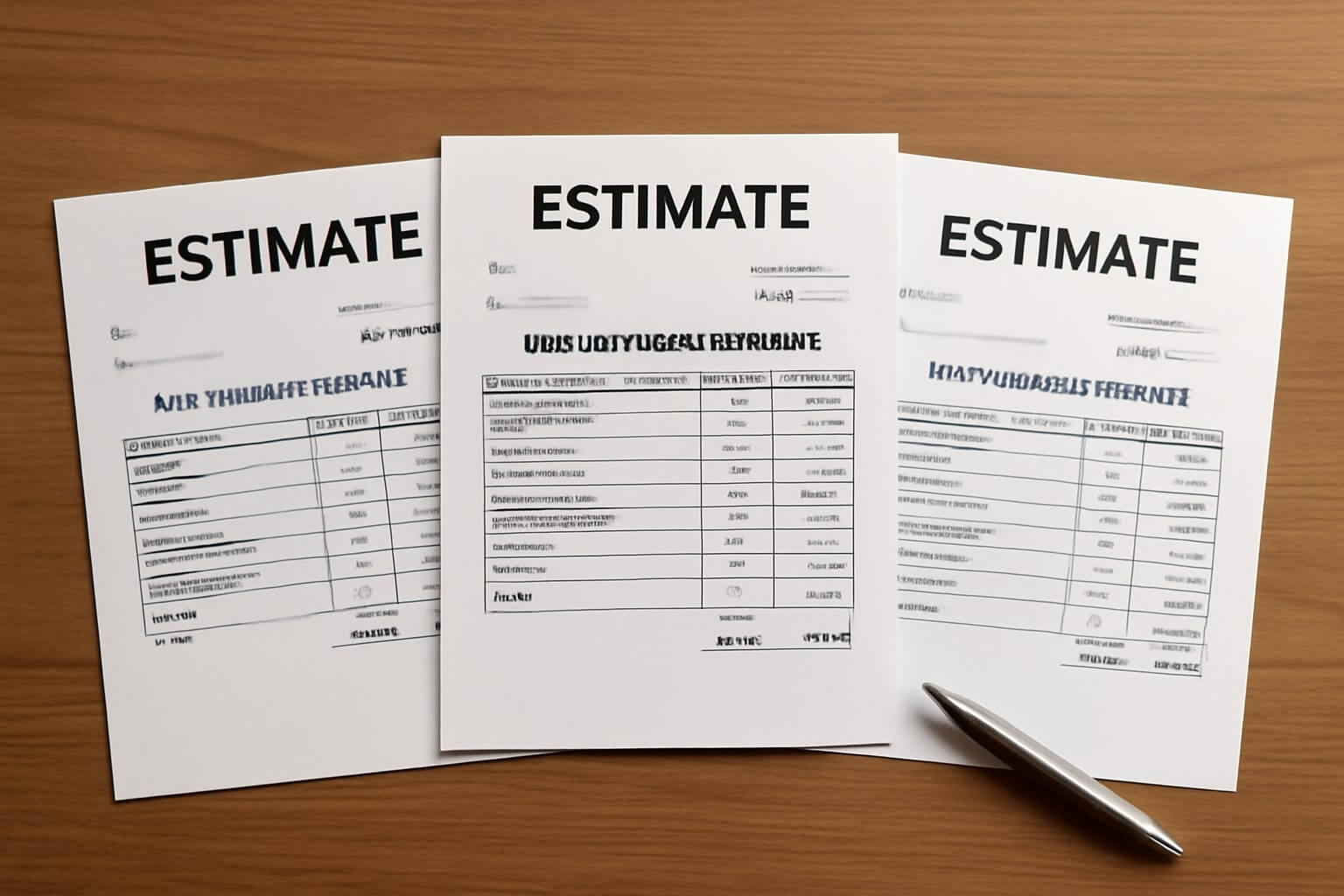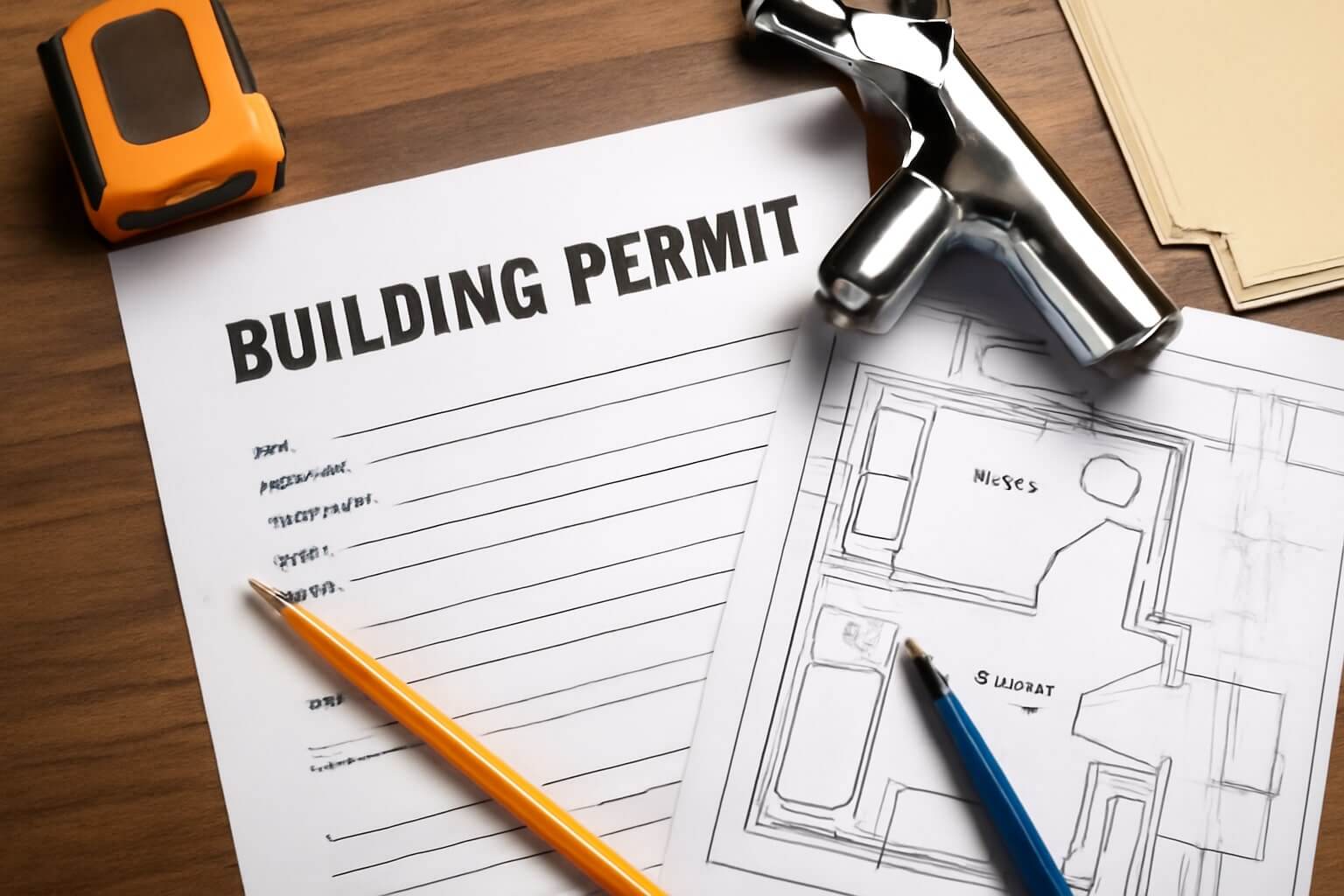Before starting your bathroom remodel, it’s vital to determine whether you need a permit. Local building codes vary considerably, and knowing what changes require approval can save you time and money. While minor updates might be exempt, major alterations often aren’t. Understanding these nuances is important. So, what specific renovations could put you at risk of fines or complications? Let’s explore the details to guarantee your project goes smoothly.
Key Takeaways
- Check local building codes to identify specific regulations that dictate what renovations require a permit in your area.
- Determine if your project involves minor changes, like painting or replacing fixtures, which typically do not need permits.
- Major alterations, such as plumbing changes or electrical upgrades, usually necessitate obtaining the appropriate permits.
- Verify if any exemptions apply to your renovation based on its scope or size as defined by local regulations.
- Consult with local authorities or a professional if uncertain about permit requirements for your specific remodeling plans.
Understanding Local Building Codes
When you’re planning a bathroom remodel, understanding local building codes is vital, as these regulations dictate what’s permissible in your area.
Familiarize yourself with local regulations to guarantee your project adheres to safety and structural standards. This knowledge can prevent costly mistakes and delays during building inspections.
Understanding local regulations is crucial to ensure safety and avoid costly mistakes during your bathroom remodel.
Each locality may have specific requirements regarding plumbing, electrical work, and ventilation, so checking with your local building department is important.
Don’t assume that what’s acceptable in one area applies to another. By doing your homework upfront, you can streamline your remodel, avoiding potential fines or the need for costly modifications later on.
Common Bathroom Renovations That Typically Require Permits
While you may be enthusiastic to plunge into your bathroom renovation, it’s important to recognize that certain updates often require permits.
Common permit types include electrical, plumbing, and structural modifications. For instance, installing new plumbing fixtures, relocating a toilet, or adding a shower may necessitate a plumbing permit.
If you’re upgrading electrical systems or adding new lighting, you’ll likely need an electrical permit.
Additionally, any structural changes, like moving walls or expanding the bathroom space, usually require a building permit.
Always check local regulations to confirm compliance and avoid costly fines or delays in your renovation project.
Minor vs. Major Renovations: What Qualifies?
Understanding the distinction between minor and major renovations is essential, as it directly impacts the type of permits you may need.
Minor renovations typically include cosmetic changes like painting, replacing fixtures, or installing new flooring. These projects usually don’t require permits and can enhance your bathroom’s appearance without significant structural alterations.
On the other hand, major renovations involve extensive work, such as moving plumbing, altering walls, or changing electrical systems. These projects often necessitate permits to guarantee safety and compliance with local building codes.
Recognizing these differences can save you time and hassle during your bathroom remodeling journey.
Checking With Your Local Building Department
Before you start your bathroom remodel, it’s essential to check with your local building department to understand the specific regulations in your area.
You’ll want to familiarize yourself with the permit exemption criteria, as some minor updates may not require a permit at all.
Contacting building officials can provide you with the necessary guidance to guarantee your project complies with local codes.
Local Regulations Overview
To guarantee your bathroom remodeling project complies with local laws, it’s vital to check in with your local building department.
They’ll provide you with information on any local ordinances that may affect your plans. Understanding zoning restrictions is also essential, as these can dictate what changes you can make, especially if your property falls within a specific zone.
Take the time to inquire about required permits, as failure to comply could lead to costly fines or project delays.
Permit Exemption Criteria
Have you checked whether your bathroom remodel might qualify for a permit exemption?
Understanding permit types and exemption criteria is vital before you start. Many local building departments provide guidelines outlining projects that don’t require a permit, such as minor repairs or cosmetic updates.
Typically, if you’re simply replacing fixtures like sinks or faucets without altering plumbing or electrical systems, you may be exempt.
However, criteria can vary greatly by location, so it’s important to verify specifics with your local building department.
This guarantees you stay compliant and avoid potential fines or complications down the line.
Contacting Building Officials
While steering through the complexities of bathroom remodeling, reaching out to your local building department can provide clarity on permit requirements.
Utilize various contact methods, such as phone calls, emails, or in-person visits, to guarantee you get accurate information.
When making official inquiries, be specific about your planned renovations, as this helps officials give you tailored advice. They can inform you if your project requires a permit or if you’re exempt.
The Importance of Permits for Electrical and Plumbing Work
When you’re remodeling your bathroom, obtaining permits for electrical and plumbing work is essential.
Local building codes are designed to guarantee safety and compliance, protecting both you and your home.
Ignoring these requirements can lead to serious consequences, including fines and unsafe installations.
Local Building Codes
Understanding local building codes is essential for anyone undertaking bathroom remodeling, especially when it comes to electrical and plumbing work.
These local regulations dictate the standards your project must meet, ensuring safety and functionality. Failing to comply can lead to costly penalties or necessitate extensive revisions.
Additionally, building inspections may be required to verify that your work adheres to these codes. Before you start, check with your local authority to understand the specific permits needed for your project.
This proactive approach not only keeps you compliant but also helps safeguard your investment in the remodel.
Safety and Compliance
Securing the necessary permits for electrical and plumbing
isn’t just a bureaucratic hurdle; it’s a critical step to guarantee safety and compliance.
By obtaining permits, you ascertain that your project meets essential safety standards and passes compliance checks. Here’s why you shouldn’t skip this step:
- Protects against electrical hazards
- Ascertains plumbing systems function correctly
- Prevents potential water damage
- Safeguards your investment and home value
Ignoring these permits can lead to unsafe conditions and costly issues down the line.
Prioritize safety and compliance; your bathroom remodel won’t only look good but also be safe and sound.
Consequences of Non-Compliance
Failing to obtain the necessary permits for electrical and plumbing work in your bathroom remodel can lead to serious consequences that extend beyond mere fines.
You may face legal repercussions, including having to undo completed work, which can be costly and time-consuming. Financial penalties can also escalate quickly, with local authorities imposing hefty fees for non-compliance.
Additionally, unpermitted work can void your homeowner’s insurance, leaving you vulnerable in case of accidents or damages.
Ultimately, ensuring you have the proper permits not only protects your investment but also keeps you compliant with local building codes and regulations.
Consequences of Remodeling Without a Permit
Remodeling your bathroom without the necessary permits can lead to a range of serious consequences that may affect both your finances and your property.
You might face:
- Legal ramifications that could include fines or lawsuits.
- Financial penalties imposed by local authorities for non-compliance.
- Increased difficulty when selling your home due to unpermitted work.
- Potential safety hazards that arise from improperly completed renovations.
These repercussions can quickly escalate, making it vital to understand the importance of obtaining permits before starting any remodeling project.
Understanding the necessity of permits before remodeling is crucial to avoid escalating repercussions.
Protect your investment and guarantee your renovations comply with local building codes.
Homeowner Responsibilities in the Permit Process
Before diving into your bathroom remodeling project, you need to understand your responsibilities in the permit process.
As a homeowner, your obligations include researching local regulations to determine if a permit is needed for your specific project. You’ll also need to submit the required paperwork and pay any associated fees.
It’s essential to provide accurate information during the application process to avoid delays. Additionally, you should schedule inspections if required to guarantee compliance with building codes.
When to Consider Hiring a Professional
While tackling a bathroom remodel on your own can be rewarding, there are times when hiring a professional is the best choice.
Consider bringing in an expert if:
- You’re unsure about local building codes and permits.
- You’re facing complex plumbing or electrical issues.
- You want to guarantee high-quality finishes and craftsmanship.
- You need assistance with budgeting and remodeling costs.
A skilled contractor can also help with contractor selection, making sure you find the right fit for your project.
Ultimately, investing in professional help can save you time, money, and stress in the long run.
Tips for a Smooth Bathroom Remodeling Process
To guarantee a smooth bathroom remodeling process, careful planning and organization are essential from the outset.
Begin with thorough design considerations—map out your layout, choose materials, and select fixtures that align with your vision.
Start by carefully designing your bathroom—outline the layout, select materials, and pick fixtures that reflect your unique vision.
Next, focus on budget planning; set a realistic budget that includes a buffer for unexpected expenses. Research costs for materials and labor to avoid surprises.
Communicate clearly with any contractors or suppliers you hire, ensuring everyone’s on the same page.
Finally, create a timeline for your project, allowing flexibility for delays.
Conclusion
To summarize, always check your local building codes before starting your bathroom remodel. Knowing whether your project requires a permit can save you from potential fines and compliance issues. Minor updates may not need approval, but significant changes like plumbing or electrical work typically do. By understanding the requirements and responsibilities, you can guarantee a smoother remodeling process and enjoy your new bathroom without unnecessary setbacks. Always prioritize safety and legality in your renovation efforts.




